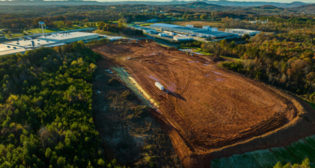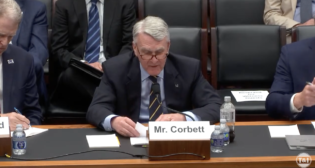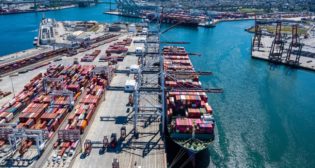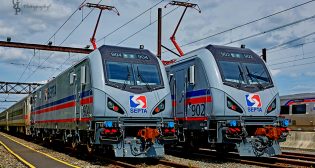
Alberta tar just can’t get no satisfaction
Written by David Thomas, Canadian Contributing Editor
After months of whining about low market value for its low-grade psuedo-oil, the Alberta government announced in November that it would purchase and operate a vast fleet of 7,000 tank cars and 80 locomotives—arguing, in Canutian defiance of Economics 101, that more supply would push up demand and price. Then, only days later in a panicked and completely opposite action, Alberta imposed production quotas to reduce supply.
Astonishingly, market theory kicked in, causing the prices for the now-constrained supply to jump closer to the North American benchmark price for crude oil.
It worked so well, in fact, that the economics of crude-by-rail (CBR) crashed. The price increase eliminated the discount-from-benchmark that covered the penalty cost of shipment by rail.
Imperial Oil, (the Canadian face of Exxon Mobil Corp. and responsible for half of the CBR traffic out of the province), announced Feb. 1 that it was halting all of its rail shipments. Then Suncor announced Feb. 6 that it, too, is winding down its CBR movements.
“The rail economics are seriously damaged, and a lot of the rail movements are stopping or have stopped,” Suncor CEO Steve Williams told investment analysts.
This should be a good time for bitumen (Alberta’s politically correct name for tar), because its main competitor in the heavy oil market, multi-troubled Venezuela, is unable to supply Gulf Coast refineries as usual.
However, there is not enough pipeline capacity to get the goo from Canada’s boreal forest to the U.S. south coast. Campaigns by First Nations tribes and climate activists—enabled by maladministration at the U.S. State Department and the incompetence of its Canadian promoters—have stranded the hapless Keystone XL above ground in mounds of useless pipe. Meanwhile, yet more government incompetence, this time in Ottawa, caused its self-given approval for a new pipeline to Canada’s Pacific Coast to be yanked by the courts.
The underlying cause is that a succession of Canadian and Albertan governments, greedily deluded by the false imminence of peak oil, showered international oil companies with massive subsidies to induce them to mine the tar sands, on the theory that the draining of conventional oil fields would force refiners to convert their crackers from light to heavy crude.
Then, fracking happened. The world is awash in cheap high-quality oil. Alberta’s tar simply cannot compete in an environment of low prices.
No new fleet of oil trains nor clumsy market interventions will bend the curves of supply and demand enough to redeem Canada from its gargantuan economic and environmental fiasco.
 Contributing Editor David Thomas is a reporter who has covered government and society since graduating from Ottawa’s Carleton University with degrees in political science and journalism. He has written for National Geographic, Maclean’s, The Globe and Mail, The Gazette, and The Canadian Press news agency from postings in Ottawa, Montreal, Quebec City, Toronto and London, England. “Railroading has been a personal fascination since a childhood timed fortunately enough to witness the golden years of steam on the late-to-dieselize Canadian National and Canadian Pacific,” he says.
Contributing Editor David Thomas is a reporter who has covered government and society since graduating from Ottawa’s Carleton University with degrees in political science and journalism. He has written for National Geographic, Maclean’s, The Globe and Mail, The Gazette, and The Canadian Press news agency from postings in Ottawa, Montreal, Quebec City, Toronto and London, England. “Railroading has been a personal fascination since a childhood timed fortunately enough to witness the golden years of steam on the late-to-dieselize Canadian National and Canadian Pacific,” he says.



